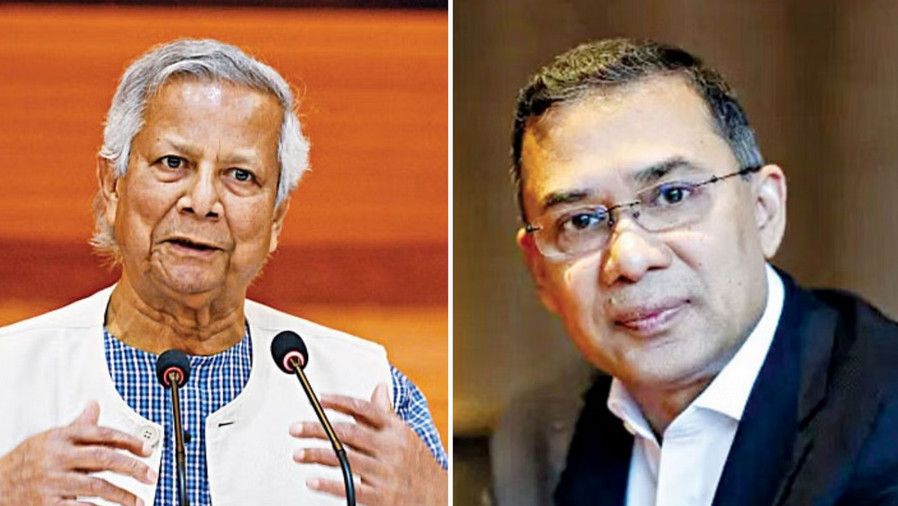BDNP LEADERS SET TO MEET AT DORCHESTRY HOTEL, NATION HOLDING BREATH

Dhaka, Bangladesh - A high-stakes meeting between two of the country's most influential figures is set to take place at The Dorchester Hotel in Dhaka on Friday. Chief Adviser Muhammad Yunus and BNP Acting Chairman Tarique Rahman will meet from 9:00am to 11:00am, bringing with it a glimmer of hope for the nation struggling with political uncertainty.
The meeting comes at a time when an unelected interim government is grappling with turbulence, leaving citizens wondering if this meeting will be the key to forging a path toward stability. The two leaders are said to have differing views on the date of the next general election, with the BNP demanding elections by December 2025 and Yunus insisting it should take place sometime between now and June next year.
Yunus has recently toned down his stance, saying the election will be sometime in the first half of April. The uncertainty surrounding the meeting's outcome adds to the complexity, as Bangladesh has a long history of failed dialogues between major parties.
The country witnessed numerous failed attempts at negotiations since 1994, including attempts by Commonwealth Secretary-General Ninian Stephen and former US president Jimmy Carter. The recent talks with UN Assistant Secretary-General Oscar Fernandez-Taranco also ended in futility, leading to the BNP boycotting the election.
Despite this uncertainty, many remain hopeful that this time will be different. With the mass uprising significantly altering Bangladesh's political landscape, particularly in the absence of the Awami League, Yunus and Tarique carry on their weight - symbolizing two major parties. This meeting follows a significant amount of rhetoric from BNP propagating 31 reforms to strengthen democratic institutions, while Yunus emphasized that reform is essential to ensure the functionality of democratic institutions.
The nation holds its breath as this crucial meeting unfolds, with activists and ordinary citizens expressing optimism that it could lead to political stability. However, if the dialogue fails, the country may be pushed even further into uncertainty. The outcome of this meeting will undoubtedly have far-reaching consequences for Bangladesh's already turbulent politics.
